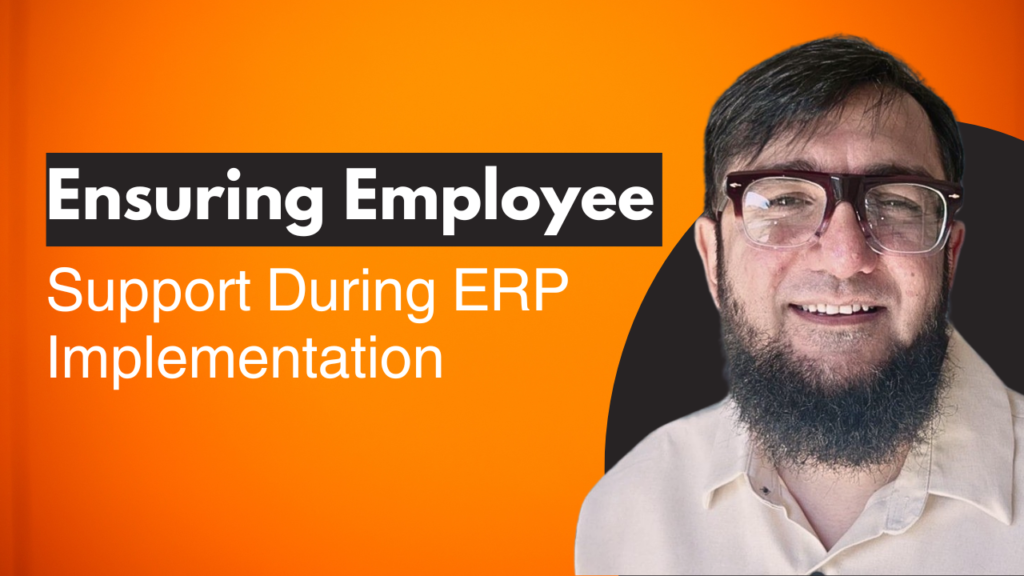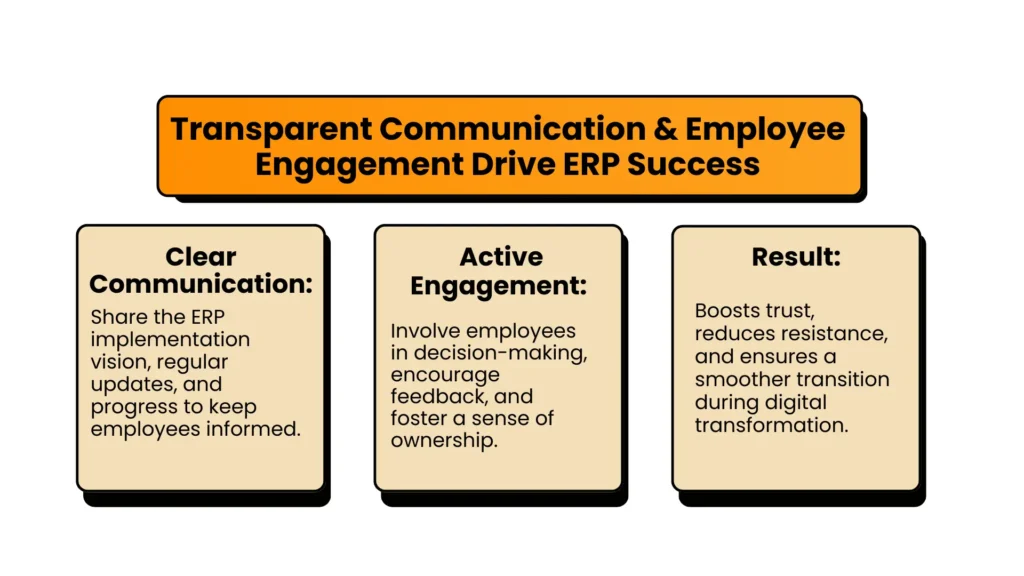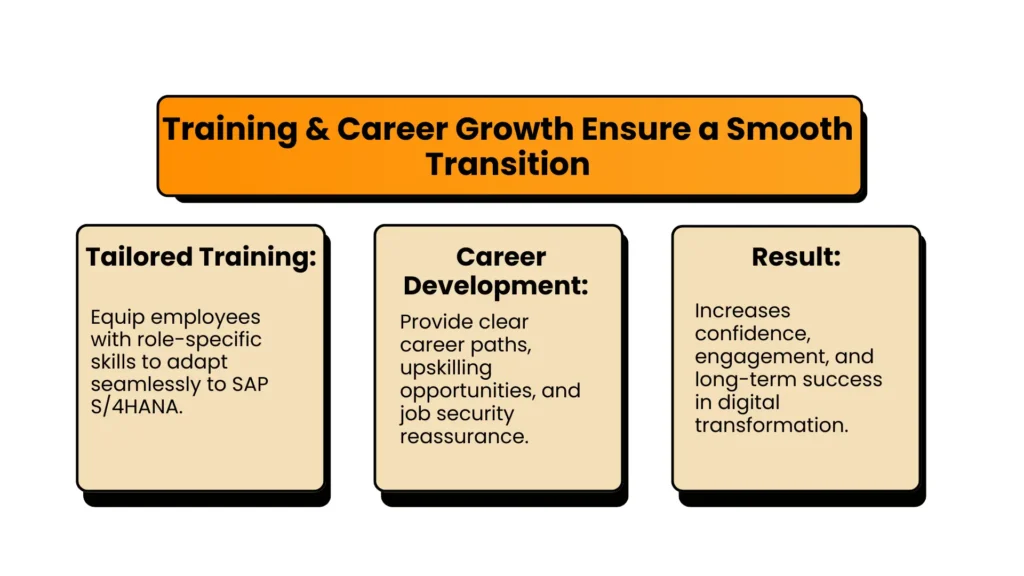Making Employees Feel Safe and Valued Amid ERP Implementation
Posted on February 10, 2025 by Laeeq Siddique

Authored by Mr. Laeeq Siddique — Leading SAP S/4HANA Innovation & Strategy
Navigating the complexities of digital transformation is a challenging yet essential task for organizations seeking to boost efficiency, streamline operations, and drive innovation. Strong Employee Support ERP Implementation is vital during this process. As companies implement cutting-edge ERP systems like SAP S/4HANA, they embark on an intricate journey.
Employee confidence and security play a pivotal role in determining the project’s success and fostering a vibrant company culture. In this article, we will dive into practical strategies to ensure employees feel safe and valued during ERP implementation.

II. Grasping Employee Concerns in ERP Implementation
When organizations start digital transformation, employees often feel threatened. For example, they worry about job security because of automation or process changes. They may also feel anxious about skill gaps or restructuring. Therefore, management must acknowledge these concerns. More importantly, they should address them with empathy and understanding throughout the process.
Learn more about the importance of early gap identification in Gap Identification in SAP ERP Implementation
III. Fostering Transparent Communication in ERP Implementation
Transparent communication is key to effective Employee Support ERP Implementation. Management should clearly share the digital transformation vision, provide ongoing updates, and encourage open employee feedback.
For example, with new tools like SAP Fiori post-S/4HANA, proactive communication reduces resistance and confusion. Explore how organizations handle such challenges in 5 Major Hurdles and Solutions in Adopting SAP Fiori after S/4HANA Implementation
Establishing two-way communication builds trust and strengthens the company community.
IV. Providing Training and Skill Development Opportunities
Employees often feel unsure when new systems like SAP S/4HANA are introduced. To address this, management should identify the key skills needed for the system. Next, they should create customized training programs for each role. By promoting continuous learning, employees gain the expertise to succeed. This also helps the project succeed.
Moreover, identifying ERP gaps early allows timely training. This prepares employees to face new challenges confidently. Explore our detailed article on Gap Identification in SAP ERP Implementation
V. Engaging Employees in the Decision-Making Process
Involving employees in the decision-making process instills a sense of ownership and pride in their work. By soliciting employee input on implementation decisions and collaborating with teams to identify areas for improvement, management can cultivate a more inclusive and supportive atmosphere. Recognizing and celebrating employee contributions further elevates morale and encourages active participation in the digital transformation journey.

VI. Creating a Supportive Environment in ERP Implementation
Creating a positive work environment is vital for ensuring employee well-being during digital transformation. Encouraging a culture of empathy and understanding, providing resources for stress management and well-being, and fostering a sense of community and shared purpose will help employees feel secure and supported throughout the process.
One of the ways to foster this environment is by identifying ERP gaps early on, which reduces uncertainty and prevents potential disruptions.
VII. Safeguarding Job Security in ERP Support
To assuage fears of job loss, management should reassure employees about their roles and future prospects within the organization. Identifying new opportunities, assisting employees in transitioning to new roles if needed, and supporting their growth and development can go a long way in establishing a sense of security and loyalty.
VIII. Conclusion
In conclusion, addressing employee concerns, fostering a supportive work environment, and providing ample opportunities for growth and development are essential for ensuring employees feel safe and valued amid ERP implementation. By embracing these strategies, companies can successfully navigate the challenges of digital transformation, ultimately benefiting project outcomes and contributing to a stronger, more resilient company culture in the long run.
